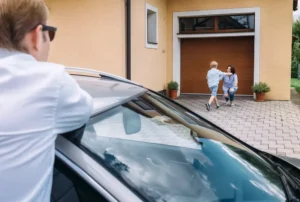What If Your Child Doesn’t Want to Visit the Other Parent?~2 min read

If you are the parent with whom your child lives, it can be extremely upsetting to have your child claim that he or she does not want to visit the other parent. The child may cry when the parent arrives for visitation and refuse to even get in the car.
You may be tempted to cancel the visitation. Your sympathy will obviously be with your child. You wonder if something serious has happened when the child was with the other parent, causing you some anguish and resistance to requiring visitation. But court ordered visitation cannot be canceled by one parent without risking serious repercussions from the court including an order of contempt.
Try to Figure Out Why Your Child is Resisting Visitation
The first thing you may want to do is try to figure out why your child is resisting visitation.
- Listen carefully. Give your child the opportunity to express what he or she may be thinking and feeling. Do so nonjudgmentally and without taking sides. Giving your child this acknowledgement that what they have to say is important may reveal to you the reasons for the anxiety.
- Avoid reinforcing the negative feelings. Encourage the child to see the positive aspects of visiting the other parent. Avoid reinforcing the thoughts of not wanting the child to go. Do not say things like, “I wish you didn’t have to go.” Say instead that the other parent “really looks forward to spending time with you.”
Discuss with the other parent, if you can, the child’s concerns about visitation.
What to do if You Believe Your Child is Being Harmed by Visitation with the Other Parent
If you have valid concerns that your child is being harmed by visits with the other parent, call your attorney. You may need to ask the court for a modification of visitation. A court hearing may be required in which both parents present evidence concerning visitation and the harm it may be causing the child. The court may listen to the fears of children who are old enough to express their feelings. The court is not required to comply with the wishes of the children, but it may be compelled to change visitation if the court believes such a change is in the best interest of the child.
Attorney Daniel Abasolo at Springer & Lyle can help you answer questions regarding child custody and visitation, and help you make decisions that are best for your family. Contact us at 940-387-0404 to schedule your family law consultation with Mr. Abasolo or one of our other experienced family law attorneys.







